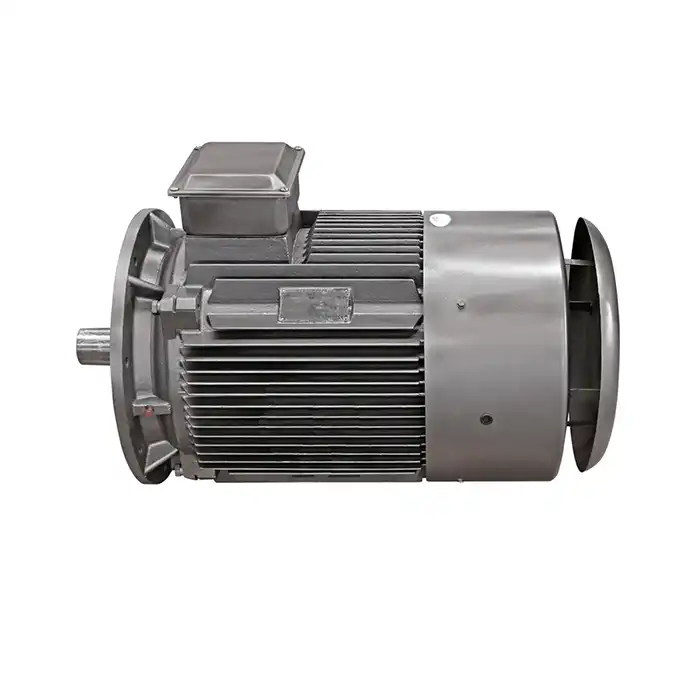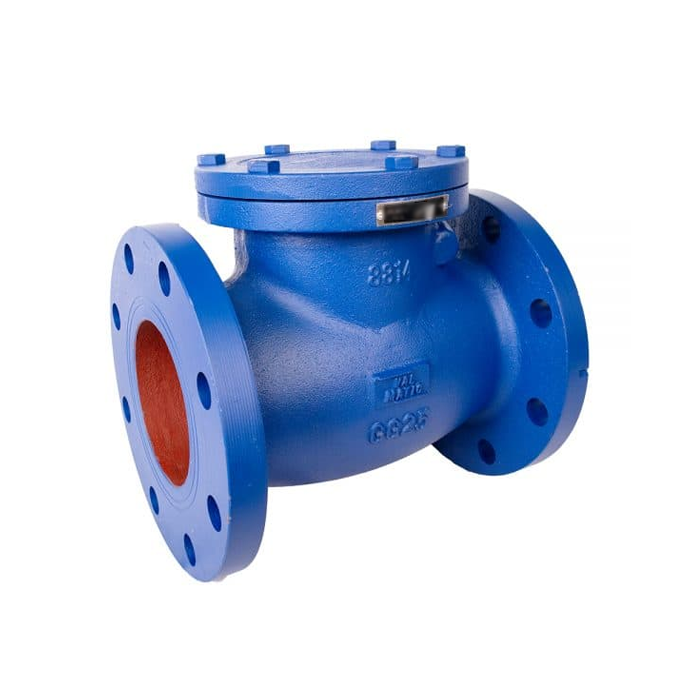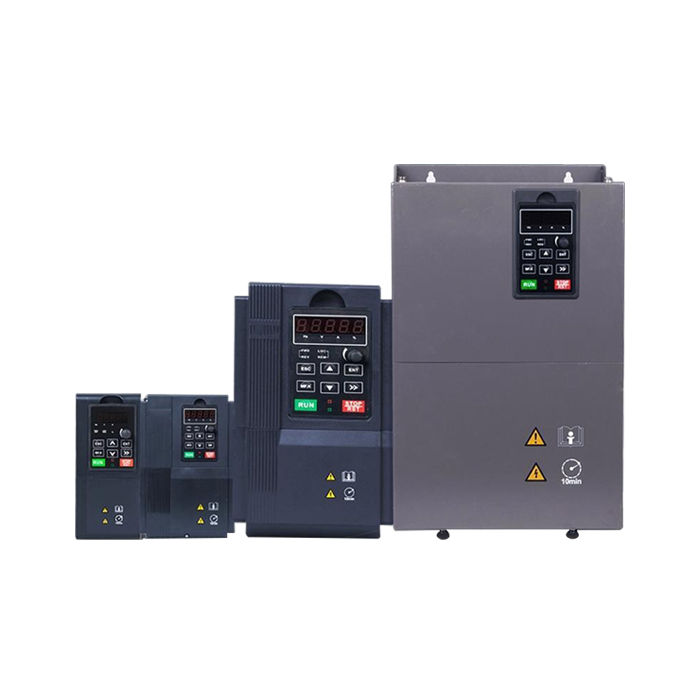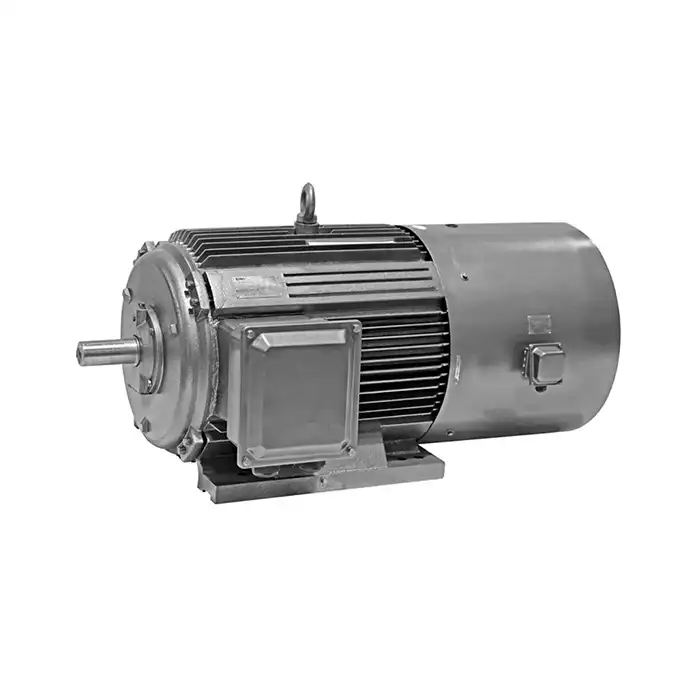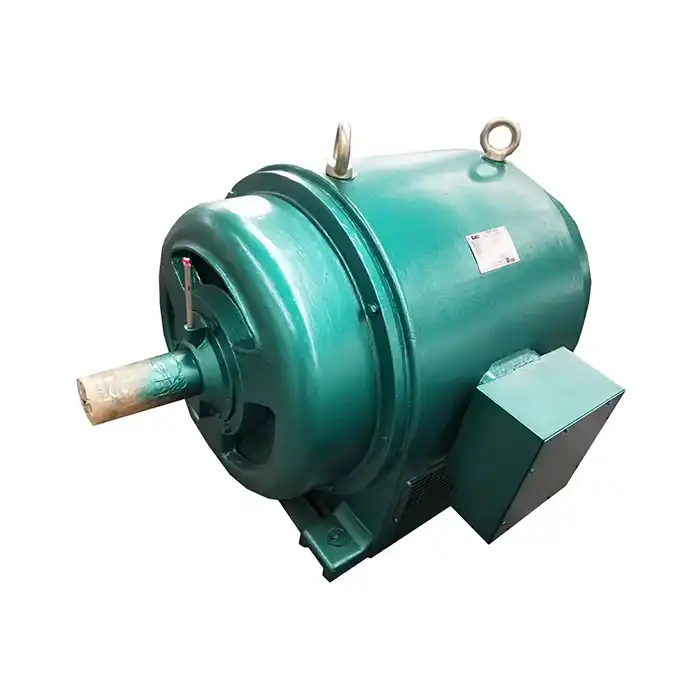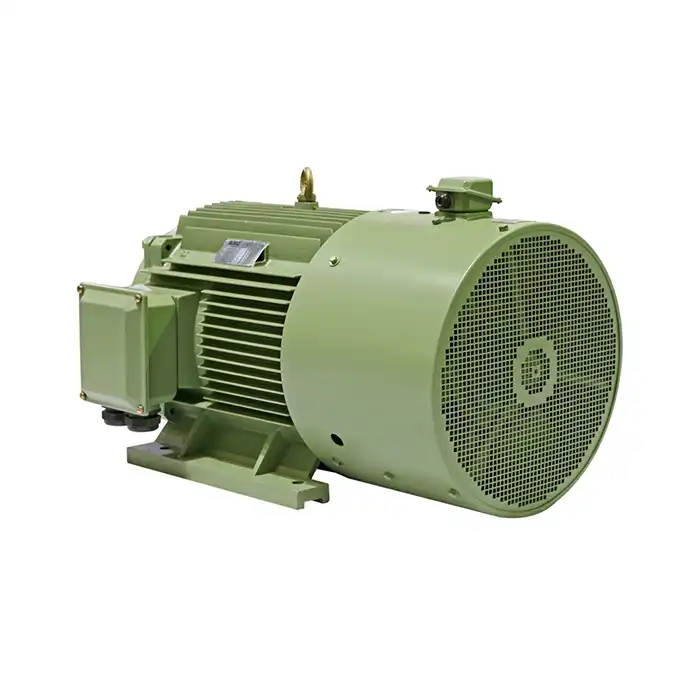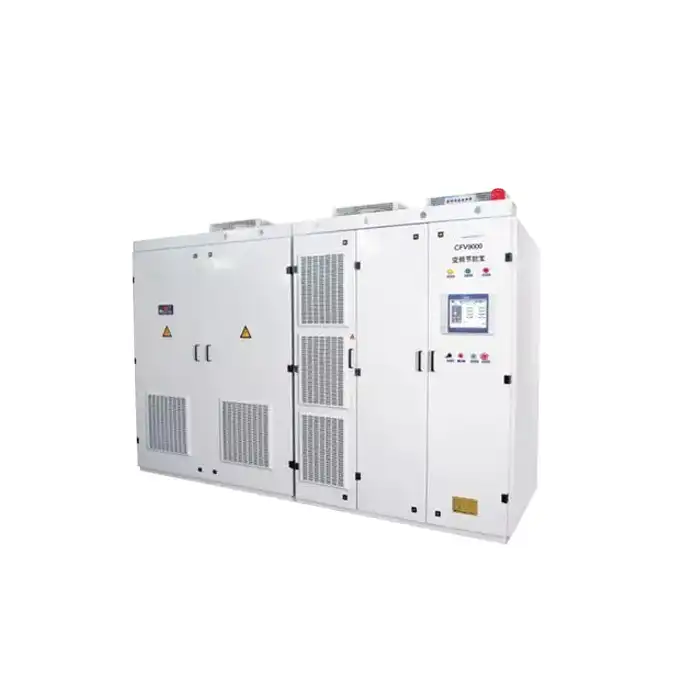Exde Motors in Chemical Plants: Safety and Reliability
It is very important to pick the right tools for chemical plants because they are difficult and could be dangerous. This will keep everyone safe and help the plants run smoothly. Exde motors are very useful in these cases because they keep things from blowing up and last a long time, which is important in the chemical business. This article explores the significance of exde motors in chemical plants by focusing on their safety and dependability in tough situations.
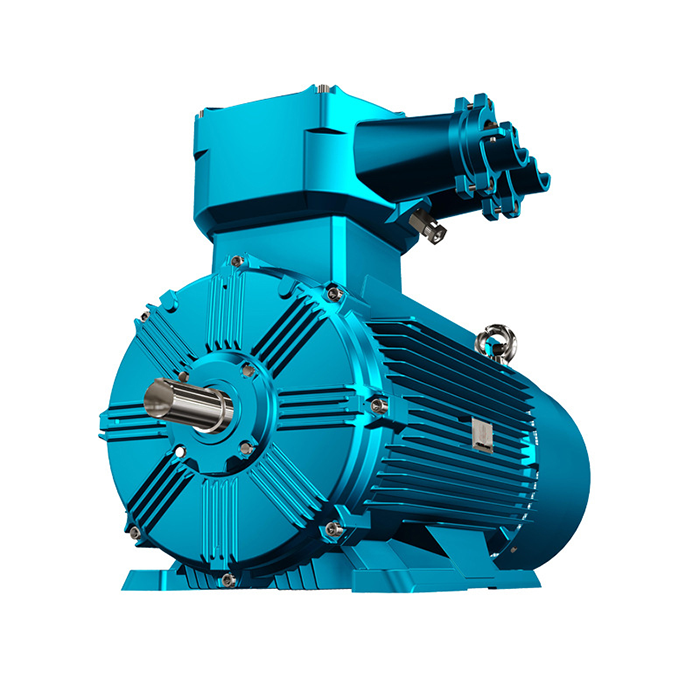
Series:YBBP
Voltage range:380V,660V,415V,380/660V,660/1140V
Power range:0.55-355 kW
Application:places where explosive gas mixtures exist in petroleum, chemical, mining, metallurgy, electric power, machinery and other industries.
Advantage: wide speed regulation range, fast dynamic response, high speed regulation accuracy.
Explosion-proof mark: Ex d I Mb, Ex d IIB T4 Gb, Ex d IIC T4 Gb
Others: SKF, NSK, FAG bearings can be replaced according to customer requirements.
Corrosion Resistance: Key Feature of Exde Motors
One of the primary challenges in chemical plants is the presence of corrosive substances that can quickly degrade standard equipment. Exde motors are designed to withstand these harsh environments, ensuring longevity and consistent performance.
Advanced Materials in Motor Construction
The construction of the product involves the use of specialized materials that resist corrosion:
- Stainless steel components: Key structural and mechanical components are often made of stainless steel, which offers excellent resistance to rust and corrosion. This helps maintain the motor’s integrity in moist or chemically aggressive environments, prolonging its service life.
- Corrosion-resistant coatings: Where metal surfaces are exposed, corrosion-resistant coatings such as epoxy or powder coatings are applied. These protective layers prevent oxidation and degradation, preserving the motor’s functionality and appearance over extended periods.
- Non-metallic parts where applicable: In areas where metal is not essential, non-metallic components such as plastics or composites are used. These materials naturally resist corrosion, further reducing the risk of deterioration and ensuring consistent motor performance in challenging conditions.
These materials not only protect the motor from corrosive chemicals but also maintain the integrity of its explosion-proof features.
Sealing Technologies for Enhanced Protection
Exde motors employ advanced sealing technologies to prevent the ingress of corrosive substances:
- IP68 rated enclosures: Exde motors are often housed in enclosures that meet the IP68 rating, which ensures complete protection against dust and water ingress. This high level of protection makes the motors suitable for use in extremely harsh conditions, such as underwater or highly dusty environments.
- Double-lipped seals: To enhance sealing efficiency, exde motors utilize double-lipped seals that provide a robust barrier against dirt, moisture, and other corrosive elements. These seals ensure that the motor remains intact and protected from external environmental hazards, reducing the risk of internal contamination.
- Specialized gaskets and O-rings: In addition to seals, exde motors incorporate specialized gaskets and O-rings to further prevent leakage and contamination. These components are made from high-quality materials designed to withstand harsh chemicals, high temperatures, and pressure, maintaining the motor’s integrity over time.
These sealing methods ensure that the motor's internal components remain protected even in the most challenging chemical environments.
Temperature Monitoring in Volatile Environments
Chemical plants often involve processes that generate high temperatures or require precise temperature control. Exde motors are equipped with advanced temperature monitoring systems to ensure safe operation in these volatile environments.
Integrated Temperature Sensors
Exde motors typically include built-in temperature sensors that provide real-time monitoring of:
- Winding temperatures: Temperature sensors are often embedded in the windings of the product to monitor heat buildup. This helps prevent overheating, which could damage the motor and reduce its lifespan. Keeping track of winding temperatures allows for immediate intervention if temperatures exceed safe limits, ensuring reliable operation.
- Bearing temperatures: Bearings are essential components in the motor’s rotation, and excessive heat can lead to premature wear and failure. Built-in temperature sensors monitor bearing temperatures, enabling predictive maintenance and avoiding costly downtime due to bearing failure.
- Ambient temperature within the motor enclosure: Sensors also track the ambient temperature inside the motor's enclosure. This ensures that the motor functions optimally in various environmental conditions. Monitoring the internal temperature helps detect early signs of trouble, such as insufficient cooling or excessive external heat, allowing for proactive management.
These sensors allow for immediate detection of any temperature anomalies that could indicate potential issues or hazards.
Thermal Protection Mechanisms
To prevent overheating and potential explosions, exde motors incorporate various thermal protection mechanisms:
- Automatic shut-off systems: Exde motors are equipped with automatic shut-off systems that trigger when temperatures exceed predefined limits. This system prevents the motor from overheating and ensures that the motor is safely shut down before any damage occurs, enhancing both safety and reliability.
- Cooling systems designed for hazardous environments: Exde motors often feature specialized cooling systems designed to operate effectively in hazardous environments. These cooling systems maintain the motor’s temperature within safe limits, utilizing methods such as forced air or liquid cooling to prevent overheating even under extreme conditions.
- Thermal overload relays: Thermal overload relays are incorporated into the product to protect them from excessive current and temperature rises. These relays monitor the motor’s temperature and electrical load, triggering shutdowns or alerts if thermal conditions exceed safe operational limits, thus preventing potential damage or malfunction.
These mechanisms work in tandem to maintain safe operating temperatures even under extreme conditions.
Case Study: Exde Motor Performance in Acidic Conditions
To illustrate the effectiveness of exde motors in chemical plants, let's examine a real-world case study involving a sulfuric acid production facility.
Background of the Case Study
The facility in question faced significant challenges with motor reliability due to the highly corrosive nature of sulfuric acid production. Standard motors were failing at an alarming rate, leading to frequent downtime and safety concerns.
Implementation of Exde Motors
The plant management decided to replace the existing motors with exde motors specifically designed for acidic environments. The implementation process involved:
- Careful selection of motor specifications: The first step was selecting the right exde motors based on the specific needs of the acidic environment. Factors such as corrosion resistance, power requirements, and temperature tolerance were carefully considered to ensure the motors would operate efficiently and safely in the plant's challenging conditions.
- Installation by certified technicians: Installation was carried out by certified technicians with expertise in handling the product. These professionals ensured that all components were correctly positioned, and safety protocols were followed throughout the installation process to avoid any operational risks or malfunctions.
- Integration with existing control systems: Once installed, the new exde motors were integrated into the plant’s existing control systems. This involved calibrating the motor’s settings, ensuring compatibility with the plant’s automation systems, and performing tests to verify that the motors functioned smoothly within the established operational framework.
Results and Performance Analysis
After six months of operation with the new exde motors, the facility reported:
- A 95% reduction in motor-related downtime: The switch to the product led to a dramatic reduction in motor-related downtime, with a 95% decrease in the need for repairs or replacements. This improvement was largely due to the motors' enhanced durability and resistance to harsh environmental conditions, resulting in more reliable operations.
- Zero safety incidents related to motor failures: Thanks to the robust design and integrated thermal protection mechanisms of the products, the facility experienced zero safety incidents linked to motor failures. This not only ensured a safer work environment but also demonstrated the effectiveness of the motors in preventing hazardous situations.
- Improved energy efficiency due to consistent motor performance: The new exde motors provided consistent performance, contributing to improved energy efficiency. Their ability to operate smoothly at optimal conditions reduced energy consumption, leading to lower operational costs and a smaller environmental footprint for the facility.
The case study demonstrates the tangible benefits of using the product in challenging chemical plant environments.
Conclusion
Using exde motors in chemical plants is a big step forward in safety and dependability in the workplace. These motors offer the best safety against explosions and are also very resistant to corrosion and changes in temperature. Case studies like this one show that using exde motors can make a big difference in how well and safely things work.
For people who run and handle chemical plants, choosing exde motors isn't just about following safety rules; it's also a strategic choice that can improve the performance of the whole plant. As the chemical industry changes, exde motors will likely play an even bigger role in making sure processes are safe and reliable.
Choose XCMOTOR for Your Exde Motor Needs
When you need to buy exde motors for your chemical business, XCMOTOR is the best company to go with. Our goods are designed to meet the strictest safety requirements while also working amazingly well in tough conditions. When you use XCMOTOR, you get:
- Custom-designed solutions tailored to your specific chemical processes
- Rigorous quality control ensuring long-term reliability
- Expert technical support throughout the lifecycle of your motors
Don't compromise on safety or performance. Choose exde motors manufacturer XCMOTOR for exde motors that set the standard in chemical plant operations. Contact us today at xcmotors@163.com to discuss how our products can enhance your plant's safety and efficiency.
References
1. Johnson, M. (2022). "Safety Considerations for Exde Motors in Chemical Processing". Journal of Industrial Safety, 45(3), 112-128.
2. Smith, A. & Brown, T. (2021). "Corrosion Resistance in Hazardous Area Motors: A Comparative Study". Chemical Engineering Review, 33(2), 76-91.
3. Zhang, L. et al. (2023). "Temperature Monitoring Systems in Explosion-Proof Motors: Advancements and Applications". IEEE Transactions on Industrial Electronics, 70(8), 7589-7601.
4. Rodriguez, C. (2022). "Case Studies in Motor Reliability: Sulfuric Acid Production Plants". Industrial Process Safety, 18(4), 203-217.
5. Wilson, E. (2021). "Energy Efficiency and Safety: The Dual Benefits of Modern Exde Motors". Energy in Industry, 29(1), 45-58.
6. Lee, K. & Park, S. (2023). "Material Advancements in Explosion-Proof Motor Design for Chemical Applications". Materials Science in Manufacturing, 41(5), 312-326.



